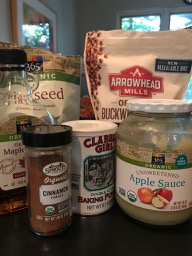OK. So this post deals specifically with how I am losing about 1 pound per week on a plant-based diet. After testing the waters with this diet since November, I’ve figured out what works and what limits weight loss in my body. Hopefully, this information will help someone in need of such a plan.
First and foremost a few pieces of advice: have your blood work checked consistently. For many of us it’s a once a year thing: check it, make adjustments and done. For me, I’ve had blood tests 3 times since November 2017. I am diligent about checking for a few very specific blood markers: lipids (HDL, LDL), overall cholesterol, C-Reactive Protein, Homocystine, Glucose, Triglycerides, and what is called the Common Metabolic Panel. Further, I have done more in depth tests on my lipid levels as a result of my concern for Lipo A, B, and C and how they contribute to plaque buildup in my body. Everyone has specific things they are looking for in their blood work…find a doctor that treats your body wholistically, like a system of interrelated parts, rather than a doctor looking for one or two specific things.
Further, learn as much as you can about your body. I did not investigate what was happening for years and that was a huge mistake. You can come to understand how your body works and what is beneficial and what is not. For example, I now know how to turn on and off the weight loss engine in my body. No joke. I can coax my body to lose weight based almost entirely on what I put into my body.
Exercise is, of course, a factor in weight loss and good health, and, generally speaking, you cannot work out enough to drop lots of weight. Sure it’s possible to work out a ton and lose weight, BUT at some point, if exercise is your only solution, you will stop losing weight. (Please understand I’m speaking from my own experience.)
Finding an eating plan that you can stick to and believe in is also a key piece of the puzzle. Whatever you choose, you have to want to wake up, everyday, and eat your way to good health. In my case, after a number of failed attempts and a huge failure with what some call the ‘paleo-diet”, I found a plan that worked for me and fit with what I learned about my body, my blood work, and my health. I did research on the various scientific studies on health and eating.
When it came down to information about eating, I avoid studies that claim to find a single eating plan. Those studies, while important, are sometimes skewed to fit a certain perspective. My advice is to look at the science. In most cases, solid scientific studies are very specific in examining the role of one or two variables. The role of saturated fat from animal protein and its impact on LDL, for example. Most scientific studies are looking for correlations between one thing and another; to take an hypothesis (saturated fat impacts LDL) and reveal whether or not such a correlation exists.
If you dig into the research, you start to find credible studies that point to a specific direction for eating. For example, eating more fruits and vegetables contributes to better outcomes for people who eat those foods. Further, limiting dairy intake also offers positive improvements. As well, regardless of what many in the popular press have said, the science shows, definitively, that saturated fat contributes to many negative outcomes for physical health. In addition, eating simple carbohydrates and sugar contributes to negative outcomes as well. The science on these topics are well-researched and repeated over and over again. I’m not going to get into the various individual choices you can make….I will say that you can find something that works for you based on your own scientific study: your body!
In my case, I went from Paleo to Dr. Stephen Gundry’s eating plan to a plant-based diet. This change happened over the course of years. Why the changes? It’s pretty simple for me: diets filled with animal protein contributed, directly, to an increase in plaque buildup in my arteries and veins. How do I know this? Let’s look at the blood work: before my diet change: HDL: 46, LDL 98, Triglycerides 136, overall cholesterol 176, glucose 130. Those numbers come from the middle of my time on a paleo diet about four years ago. The numbers aren’t terrible are they? For me, they were an indication (that I did not realize at the time) of impending doom….plaque buildup in my coronary arteries. My weight loss, at first was rapid…then it stopped entirely.
Once I left the paleo diet on my doctor’s advice, I switched to even more vegetables, added back in fruit, and limited animal protein to just twice a week: the Gundry plan. On that plan, my numbers dropped to better results: HDL 43, LDL 76, Triglycerides 98, glucose 110, cholesterol 153. Improvement! Almost two years later, however, I had an MI. Weight loss stabilized and ended despite my exercise regimen.
Finally, switching over to a no-oil, plant-based diet based on the ideas of Dr. Colin Campbell and Dr. Caldwell Esselstyn, my blood work reached an ideal spot for me: HDL 43, LDL 40, Triglycerides 74, glucose 90, cholesterol 98. Weight loss has been a consistent 1 to 1 1/2 pounds per week.
At the same time, I noticed a very pronounced drop in my blood pressure. I have read, in a number of studies, that high blood pressure can lead to many vascular problems. The research showing a correlation between high BP and stroke is well-established.
A plant-based or vegan diet has been shown to improve BP. Here’s a quotation from a study on plant-based diets and hypertension,
The investigators found that vegans and lacto-ovo vegetarians had significantly lower systolic and diastolic blood pressure, and significantly lower odds of hypertension (0.37 and 0.57, respectively), when compared to non-vegetarians. Furthermore, the vegan group, as compared to lacto-ovo vegetarians, not only was taking fewer antihypertensive medications but, after adjustment for body mass index, also had lower blood pressure readings. Another sub-study of AHS-2 examined hypertension in a black population and found that the combined vegetarian/vegan group had significantly lower odds of hypertension (0.56) compared to non-vegetarians.
In my case, my BP dropped from 140/78 to a consistent 115/60. In addition, my resting heart rate has dropped from a high of 72 to its current 53. Now, I’m exercising along with eating plants so the correlation between these factors and diet alone are not necessarily indicated in my own study; however, before I began the vegan/plant-based diet, my BP was 140/78 WITH exercise…so, I’m suggesting that the diet is the key.
Right now, I eat pretty much any plant I want with a few exceptions: no white flour, white rice, added sugar, and no oil…at all. I like whole grain cereals and eat whole grains, multigrain breads, and the like. I eat veggies, fruit, and do not have to limit my quantity of those plant-based foods.
As I mentioned earlier, however, I found out that I can stop the weight loss. If I eat more complex carbohydrates than I can reasonably burn through exercise, I stop losing weight. Here’s what happened: I like whole grain cereals with almond milk and fruit ( blueberries, strawberries etc.) Sometimes, because I am hungry, I ate two bowls of these meals a day in addition to all of the other stuff….my weight loss stopped (did not increase, just stopped). Once I removed the bowl of cereal in the late afternoon or evening AND replaced it with veggies or fruit weight loss returned. I discovered, exactly, what makes me lose weight and what does not…it took some trial and error, but it worked!
In terms of exercise, I added in two more days per week of some kind of workout. My goal is to reach between 2700 and 3200 calories burned via exercise over the course of a week. I bought a used Polar Exercise monitor (V800) and use a chest strap to measure my heart rate. This device also has a cadence monitor (that attaches to your shoes) and speedometer (for my bike). Using all of these pieces of data, I am able to track just about all aspects of my exercise plan. I upload the information to the Polar Beat/Flow app and use the Strava app to help understand what the numbers mean.
Very specifically, I exercise for at least 45 minutes every day of the week. So far that plan is working for me. I’m 6’3″ and I need to reach 200 lbs for my ideal weight…that means, for me, another thirty pounds of weight loss. Based on my current schedule, I should be at my ideal weight by around December. Of course, that all assumes I can maintain my current workout schedule and nothing else gets in the way!
As you know, there are so many factors in weight loss and physical health. I’ve been through it all, really. What I found is something that my Buddhist teachers have said to me for year…a piece of information that is key to it all: discipline. The word really sounds pejorative and in fact it’s pretty simple: follow a plan and stick to it regardless of what else is going on in your life. Sticking to a plan is, of course, easier said than done. My motivation comes from the fact that I will, literally, die if I do not stick to my eating and exercise plan. Yea, sure, we all die sometime AND we can ensure, to some extent, that we do not die by our own hands. This lesson I learned late in life, and I am glad I heard the message my body sent me. I hope for you that such a similar, wonderful smack upside the head happens to you.
Below are photos of a recent foray into buckwheat pancakes! Enjoy!



